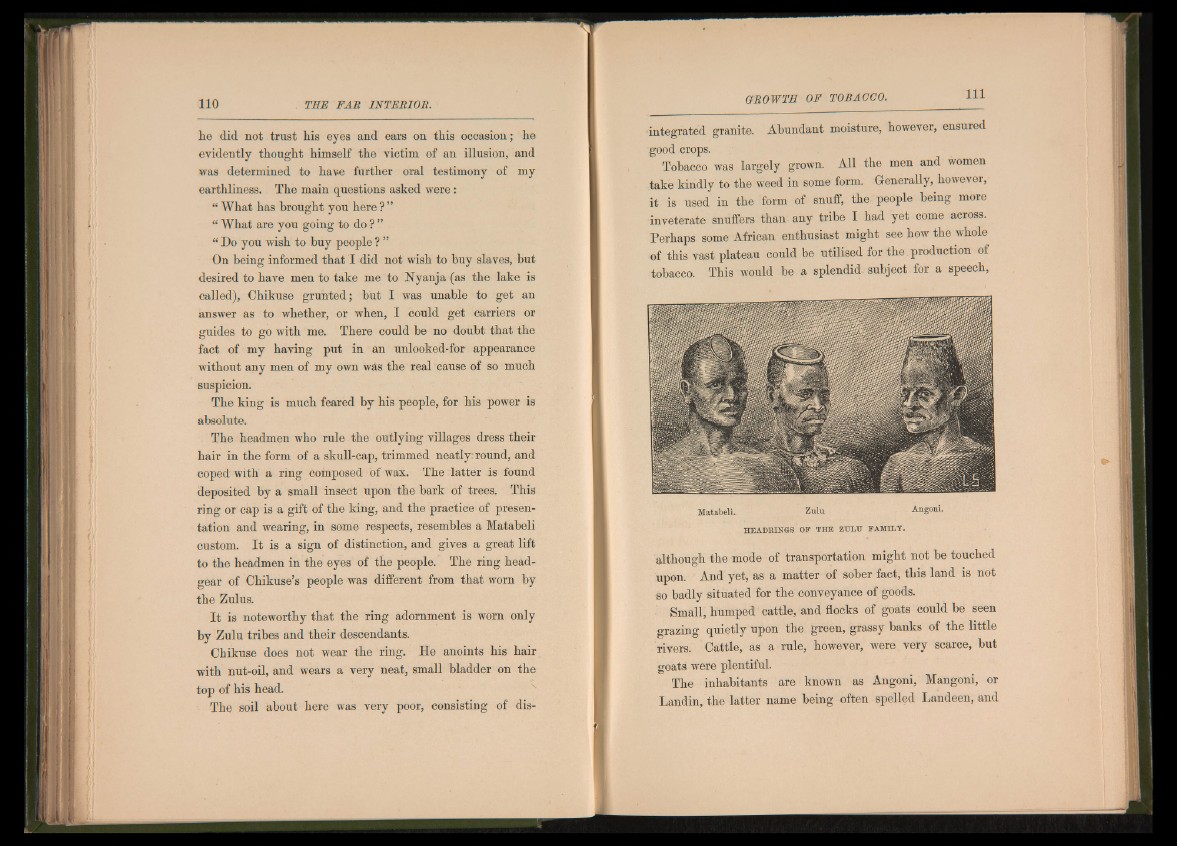
he did not trust his eyes and ears on this occasion; he
evidently thought himself the victim of an illusion, and
was determined to have further oral testimony of my
earthliness. The main questions asked were :
“ What has brought you here ? ”
“ What are you going to do ? ”
“ Do you wish to buy people ? ”
On being informed that I did not wish to buy slaves, but
desired to have men to take me to Nyanja (as the lake is
called), Chikuse grunted; but I was unable to get an
answer as to whether, or when, I could get carriers or
guides to go with me. There could be no doubt that the
fact of my having put in an unlooked-for appearance
without any men of my own was the real cause of so much
suspicion.
The king is much feared by his people, for his power is
absolute.
The headmen who rule the outlying villages dress their
hair in the form of a skull-cap, trimmed neatly: round, and
coped with a ring composed of wax. The latter is found
deposited by a small insect upon the bark of trees. This
ring or cap is a gift of the king, and the practice of presentation
and wearing, in some respects, resembles a Matabeli
custom. I t is a sign of distinction, and gives a great lift
to the headmen in the eyes of the people. The ring headgear
of Chikuse’s people was different from that worn by
the Zulus.
I t is noteworthy that the ring adornment is worn only
by Zulu tribes and their descendants.
Chikuse does not wear the ring. He anoints his hair
with nut-oil, and wears a very neat, small bladder on the
top of his head.
The soil about here was very poor, consisting of disintegrated
granite. Abundant moisture, however, ensured
good crops.
Tobacco was largely grown. All the men and women
take kindly to the weed in some form. Generally, however,-
it is used in the form of snuff, the people being more
inveterate snuffers than any tribe I had yet come across.
Perhaps some African enthusiast might see how the whole
of this vast plateau could be utilised for the production of
tobacco. This would be a splendid subject for a speech,
Matabeli.. Zulu Angoni.
HEADRING8 OF THE ZULU FAMILY.
although the mode of transportation might not be touched
upon. And yet, as a matter of sober fact, this land is not
so badly situated for the conveyance of goods.
Small, humped cattle, and flocks of goats could be seen
grazing quietly upon the green, grassy banks of the little
rivers. Cattle, as a rule, however, were, very scarce, but
goats were plentiful.
The inhabitants are known as Angoni, Mangoni, or
Landin, the latter name being often spelled Landeen, and